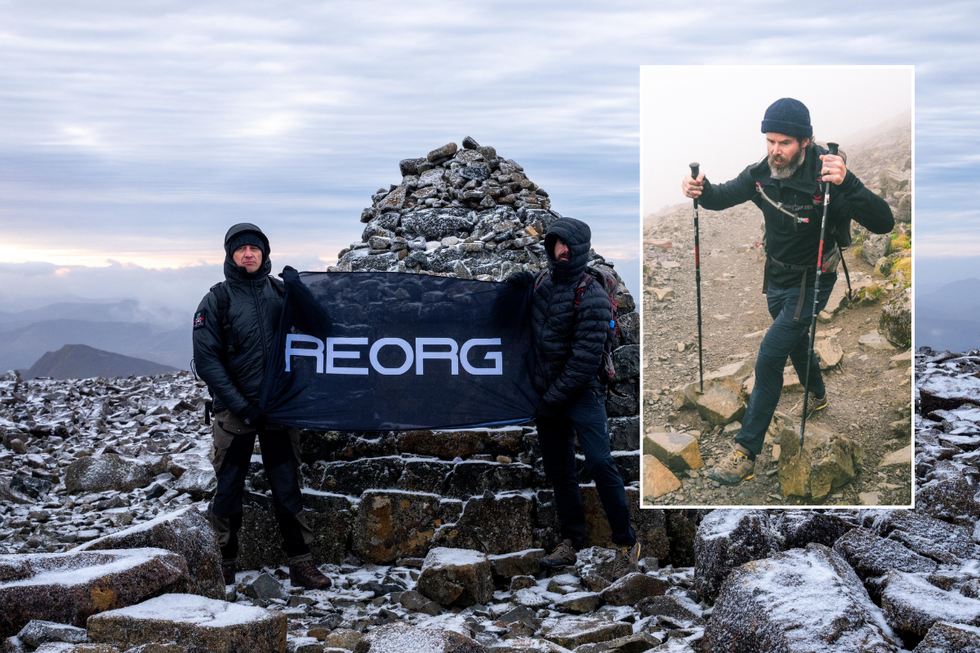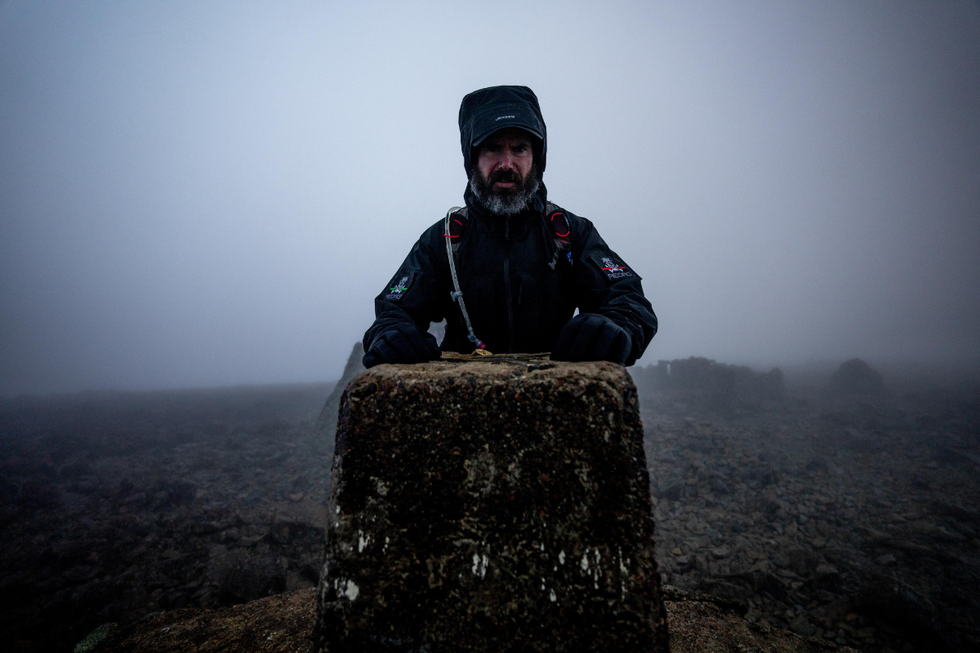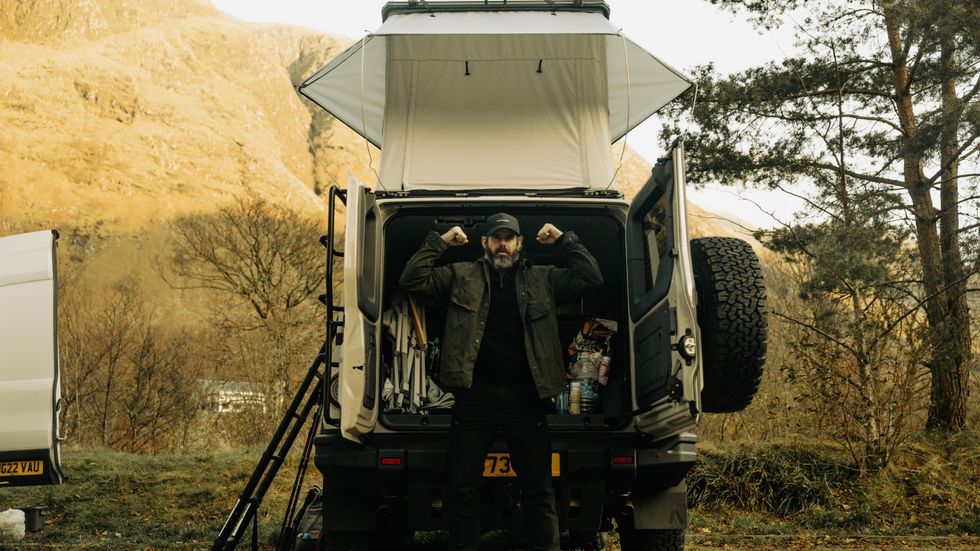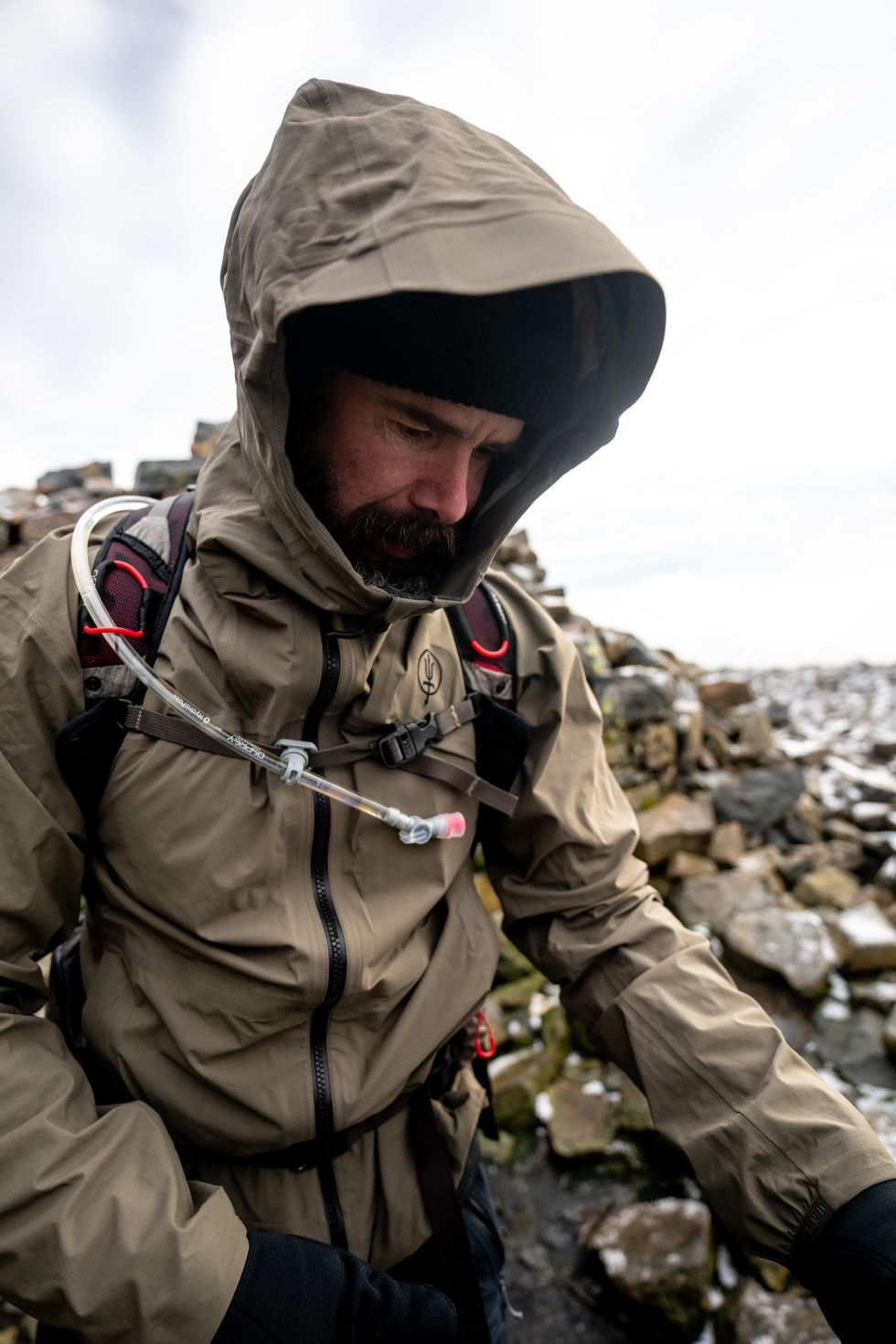Veteran climber who conquered Ben Nevis 32 times SLAMS Labour over lack of post-combat support for servicemen
A father of four from Scotland who completed an extraordinary challenge of climbing Ben Nevis 32 times said the Government is not doing enough to support veterans.
Jonny Pain, 48, from Dunfermline tackled the ambitious feat covering over 540km of climbing with a total elevation gain of 42,200m.
The strength and conditioning coach who has previously taught self-protection to military personnel, gave a stark criticism of Government support for veterans, saying it “was not very good”.
Pain highlighted how support systems are typically run by veterans themselves who have experienced the gaps in assistance firsthand.

Pain detailed the significant challenges veterans face when transitioning to civilian life, extending far beyond simple adjustment issues.
“Once you’ve signed your release and left, there is no official ramp-out process whatsoever,” Pain explained. “They give to the country for so very, very long, and then take your papers and say cheerio.”
He emphasised that vital support services are primarily driven by charities rather than Government services, leaving many veterans vulnerable after their service ends.
“More than disheartening, it can be crippling and very, very damaging,” he explained.
Pain highlighted how even basic tasks can become overwhelming for former service personnel. He added: “Even doing something like the Sunday big shop can be extraordinarily overwhelming.”

The loss of military structure and close-knit social networks compounds these challenges.
“Almost everything that we consider normal as civilians is now something that’s very abnormal to somebody who’s coming from a very, very different way of life,” he added.
REORG, the charity Pain supported through his challenge, helps veterans through the sport of jiu-jitsu. The organisation pays for veterans’ jiu-jitsu memberships and connects them with mental health services.
He told GB News: “They help leaving veterans or veterans who have found themselves maybe displaced, maybe in states of depression or suffering from mental health issues because of the difficulties of returning to civilian life.”

Pain decided to undertake the summit attempt, finishing at the peak to observe a two-minute silence for Remembrance Day. However, the extreme weather conditions during the first week posed significant challenges for Pain.
“The summit itself, because I’ve chosen November because of amnesty, it’s dark. Most of it was done in the darkness,” he said.
Of his 32 summits, Pain only had clear visibility of the summit four times due to severe weather. In a dramatic turn of events, Pain became a “de facto mountain rescue operative,” helping to rescue 10 people during his challenge.
In one incident, Pain and a mountaineer friend rescued two girls suffering from extreme hypothermia on the mountain’s dangerous south side.
“They were probably about 20 minutes from dying,” Pain recalled, noting the eight-hour rescue mission forced him to quickly resume his challenge to stay on schedule.

Speaking about how he felt after his summit attempt, he said: “A little lost. It’s a strange one. I’ve been on that mountain for two weeks. I’ve been locked in this kind of pattern of continuous, relentless and very arduous summiting.
“I found it hard to come away, which is odd. I developed a very personal relationship with the mountain itself, again, which is hard to describe, and found myself extraordinarily emotional, walking away from it.”
President and general manager of JustGiving Pascale Harvie said: “I cannot applaud Jonny enough for his determination to climb Ben Nevis a staggering 32 times. As well as raising over £6,000 for charity he’s impressively raised awareness of the vital work that REORG do to support servicemen and women.”
A government spokesperson said: “This is a government of service that will always stand up for those who serve our country. Armed Forces are given the right tools to transition into civilian society, and as veterans, can access effective ongoing support to achieve the best outcomes in employment, health and housing and other areas.
“Building on the PM’s pledge that ‘homes will be there for heroes’, the government has announced £3.5 million of additional funding to support veterans at risk of or experiencing homelessness and there is veteran specific mental health support available in England, through Op COURAGE.”

